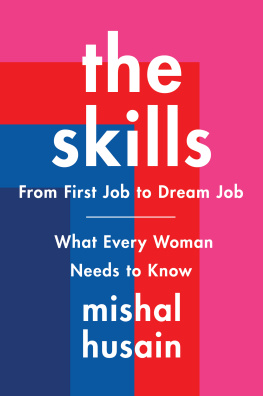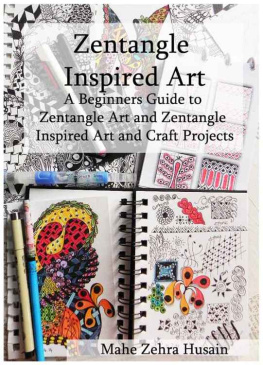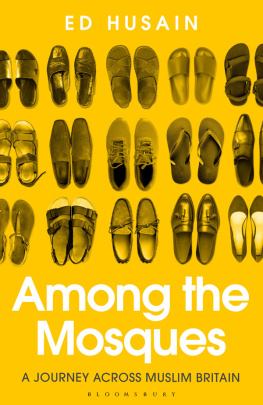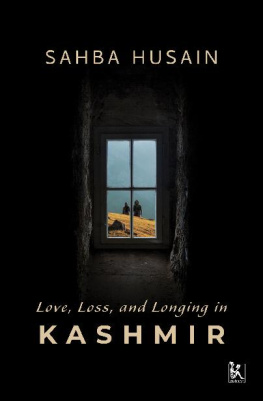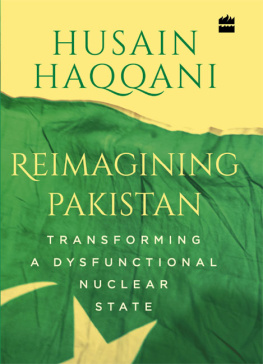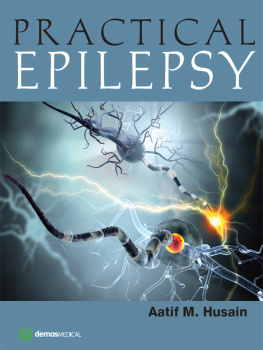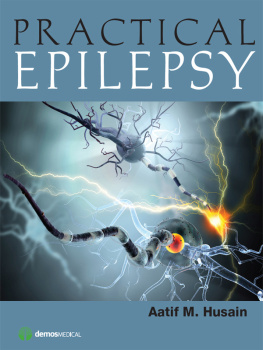Contents
My journey to this book Overcoming doubt Finding my courage
Representation of women Understanding the gaps Socialisation
How we talk about girls and women Stereotyping Imagery Reclaiming ambition
Longer working lives Role models and inspiration Five-year plans Learning from those around you
Information-gathering Critical thinking Challenging your beliefs Evaluations and judgements
Navigating the first years on the career ladder Processes that build confidence Breaks from work and re-establishing yourself afterwards
Voice, clarity and emphasis Public speaking The written word
Body language Occupying space First impressions
Social media opportunities and pitfalls Women in technology Making the internet more representative Trolling
Apprehension and anxiety The importance of practice Focusing on the immediate task
Big moments and high-pressure scenarios Appraisals and evaluations Making a pitch
Developing authority Mastering your brief Demonstrating your knowledge
Dealing with scrutiny and criticism Knockbacks and failures Learning but not losing your nerve
Managing the different elements of your life Banishing guilt Thinking long-term
Direct, persistent, purposeful. Or: uncertain, uneasy, doubtful. One of these sets of words reflects what is required to succeed in my line of work, especially amid pressure to generate new information and understanding quickly. The other reflects what I will most likely be experiencing in reality. After more than twenty years in broadcasting its a gap I know and understand the difference between how everything appears on the outside and how I will be feeling on the inside. But its also the gap that led me to write this book, out of a desire not only to be honest about doubt but about channelling it and carrying on regardless.
One particular moment in my own life encapsulates what can happen in the opposite scenario, when doubt takes over or comes close to it. In 2013, the newly appointed editor of Today, one of the BBCs most prestigious programmes, asked if I might be interested in putting myself forward as a possible future presenter. You might think the answer was obvious the role is, after all, one of the most coveted in my profession and I had by then spent seventeen years in broadcast news, thirteen of them as a presenter. Why would I not want to throw my hat into the ring? In the event, however, all I could think about was how hard the job would be the precision required, the pressure, the scrutiny, the pre-dawn starts. I went home and told my husband it was a nice idea but I couldnt imagine going for it. He looked incredulous. What would I say, he asked, if one of our children responded to a prospective new challenge by saying Great opportunity but it will be too hard?
I knew the answer to that one, and it pushed me to go for it. But for the first three years on Today, I fretted about almost every shift. I could not feel at ease in the role, worrying about what might go wrong and agonising over the things that did. And then, in a way that only became clear to me later, a moment arrived when it started to feel different. There was still an element of apprehension about each shift, but the sensation began to feel less like abject fear and more like something I could channel.
To anyone else it would have been easier to appreciate what had happened I had grown into a new role, gained new skills and begun to feel more at home. Yet to me that outcome was never a given. I now look back and wonder: what if I had bailed out after a few months, or a year or two, and thought that my uncertainty was evidence the job just wasnt right for me? I would never have discovered what I now know that time, perseverance and an increasing familiarity made an immense difference.
The experience made me reflect on how often we look at people doing striking or difficult jobs and think that they were in some way born to them, that their performance is the result of innate ability. I am often told You must never get nervous, and each time, I marvel at how far it is from the truth. We know, of course, that even the most experienced of actors can suffer from stage fright, we see how athletes psych themselves up as well as train hard physically, we are aware that even the most natural-appearing politicians will have been coached and participated in role-plays before big moments. And yet we can still be convinced that individuals achieve solely because they are in some way gifted, rather than because they have developed their capabilities.
That in turn can be a barrier to seeking new horizons precisely as I experienced. Decisive for me was not only the simple fact of practice each shift giving me more exposure to a variety of stories, interviewees and types of on-air conversations but also the broader lessons that come from the nature of my work. It is on public display, which means the low points as well as the high ones are subject to immediate and sometimes fevered comment. It is often intense, both because of unusual working hours a regular 3 a.m. alarm call and the pressure that comes from having to absorb quantities of information in a short time-frame. The more I thought about what I consider to be some of the essential tools of my trade speech, choice of words, body language, distilling information and deploying facts the more I saw them as key to being effective in any line of work and at any stage of life. They become even more important when short attention spans and the pace of working life make it ever harder to get a message across in the way you intend.
And so the idea for The Skills was born, out of a desire to pass on what I have learned, much of which I wish I had figured out earlier in life. It took me a long time to find my courage, despite the steadfast encouragement and support of my parents. Both came to the UK from Pakistan my father as a young doctor and my mother when she married him a few years later. There was never any question of me, as their daughter, being perceived differently from my brother; for both of us, the arrival of school reports sparked a gathering around the dining table where my father would read each entry aloud. As long as we appeared to be doing our best, he was satisfied: Aim high, he would say, because if you miss what you are aiming for, youll still end up in a good place.
In both my parents families, mine would be the third generation in which women had had educational opportunities comparable to men: in the 1930s, in what was then British India, my two grandmothers were enrolled on medical and nursing courses. When it came to my own education, there would be some hard choices. Rather than send me to secondary school in Saudi Arabia, where we were living in the 1980s, my parents decided I would be better off in the UK. But that meant boarding school and long separations. Years later, my father told me that the motivation wasnt only a desire for me to have a British education, but also a worry that remaining in Saudi Arabia, where I would have to wear an abaya or black cloak in public, might fundamentally alter my belief about what I could achieve in life. I know that had it not been for that decision, which in turn meant I stayed in the UK for university, I wouldnt be where I am now.
With all of this support, why do I say my courage came later in life than it might have? Partly because when I think back to my university years, I know that I would have gained so much more from them had I been more willing to ask questions, to take risks and to test out arguments in front of my lecturers and fellow students. I was simply too cautious, too conscious that I might have got the wrong end of the stick and appear silly or uninformed. That caution persisted in the first part of my professional life I was a producer at Bloomberg TV and then at the BBC, before getting into presenting at the age of twenty-seven when I would mull over running orders and scripts, in search of the ideal turn of phrase or link between one story and the next. I would approach new projects, such as working on the Olympics, almost like an exam setting aside time for preparation, making extensive notes in advance, trying to cover every base. Working on

